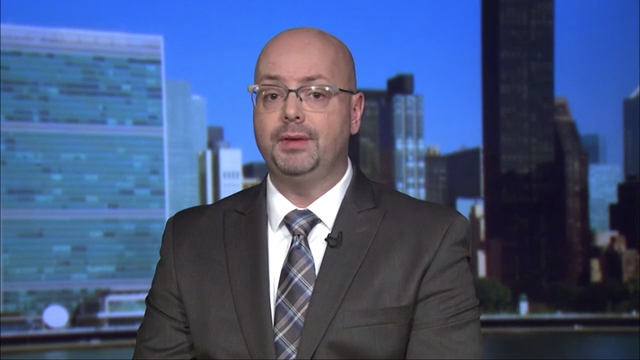
DENVER, Dec. 18, 2019 /PRNewswire/ -- Recent research reinforces the positive benefits of financial education, specifically how state-mandated high school instruction leads students and their families to make better decisions about how to borrow for college.
Experience the interactive Multichannel News Release here: https://www.multivu.com/players/English/8617751-nefe-state-mandated-instruction-leads-to-better-borrowing-for-college/
According to the study funded by the National Endowment for Financial Education® (NEFE®), and conducted by Montana State University, students in states where financial education is required to graduate from high school end up making better financial aid decisions as college freshmen, moving from higher-cost to lower-cost borrowing options. Mandated financial education increases applications for grants and federal aid, keeps overall borrowing balances down, and decreases credit card balances.
Currently, 19 states have implemented mandates requiring a personal finance course be completed as a graduation requirement. Yet, more needs to be done to help teens thoughtfully finance their postsecondary education and be prepared to manage their money beyond college.
"While there is momentum with states requiring financial education in high school, we need to make it a national priority and ensure that it's being done the right way," says Billy Hensley, Ph.D., president and CEO of NEFE. "The earlier students begin learning about money the greater benefit they will have into adulthood. Personal finance instruction should be a priority for schools in 2020."
The NEFE study finds state-mandated financial education graduation requirements:
- Increase the likelihood that students will apply for financial aid
- Increase acceptance of both grants and subsidized federal loans
- Decrease private loan amounts for borrowers
- Decrease the likelihood of carrying a credit card balance
On average, exposure to financial education:
- Increases applications for aid by 3.5 percent
- Increases the likelihood of having a grant by 1.4 percent
- Decreases the likelihood of carrying a credit card balance by 21 percent
- Reduces private loan balances by roughly $1,300 for borrowers
"It's not a question if students should borrow to go to college, but rather the method in which they borrow and how much," says Hensley. "The right amount of loans facilitate access to higher education and can ensure students graduate college and move into higher-paying careers. But too much debt, and debt that comes as a high cost of borrowing, can significantly impact success in paying back loans."
For most college-bound high school students, financing postsecondary education is their first large financial decision. However, many students lack the necessary knowledge to appropriately address their options. Less than one-third know how to compare loans, over half do not calculate future payments, and over half wish they could change their college financing decisions. The benefits of financial education go beyond financial aid and ultimately contribute to a range of improved financial decisions made by young adults beyond their formal education years.
Read more about The Effects of K-12 Financial Education Mandates on Student Postsecondary Education Outcomes.
About the National Endowment for Financial Education (NEFE)
NEFE is a nonprofit foundation that inspires empowered financial decision making for individuals and families through every stage of life. For more information, visit www.nefe.org.
SOURCE National Endowment for Financial Education









Share this article